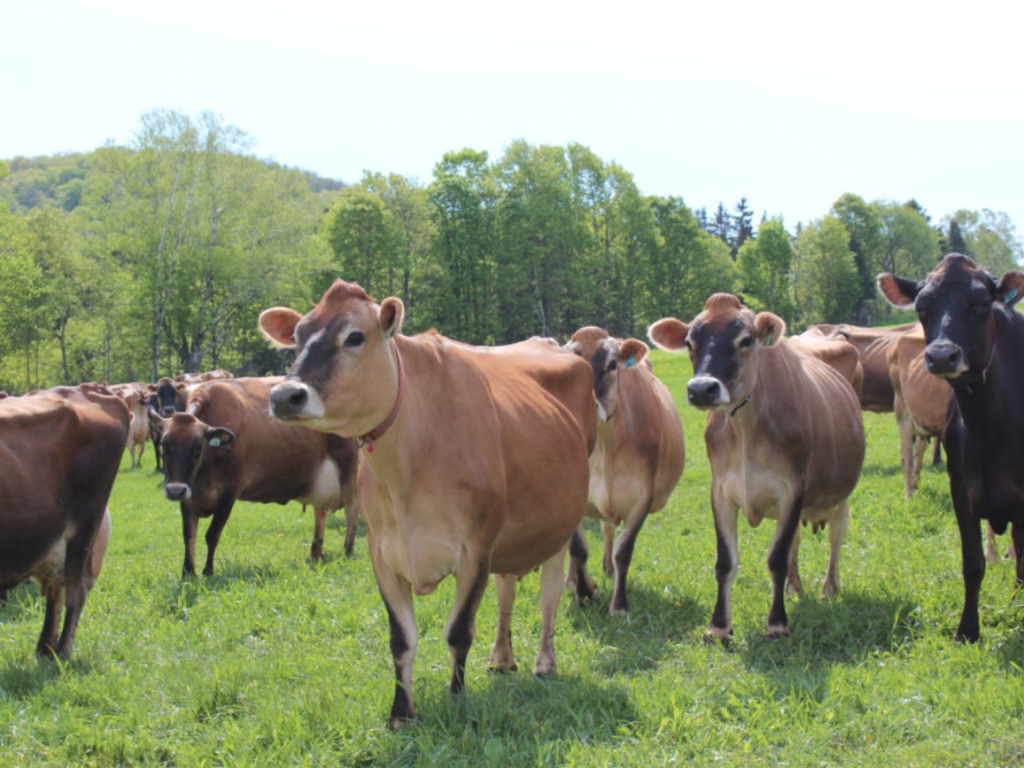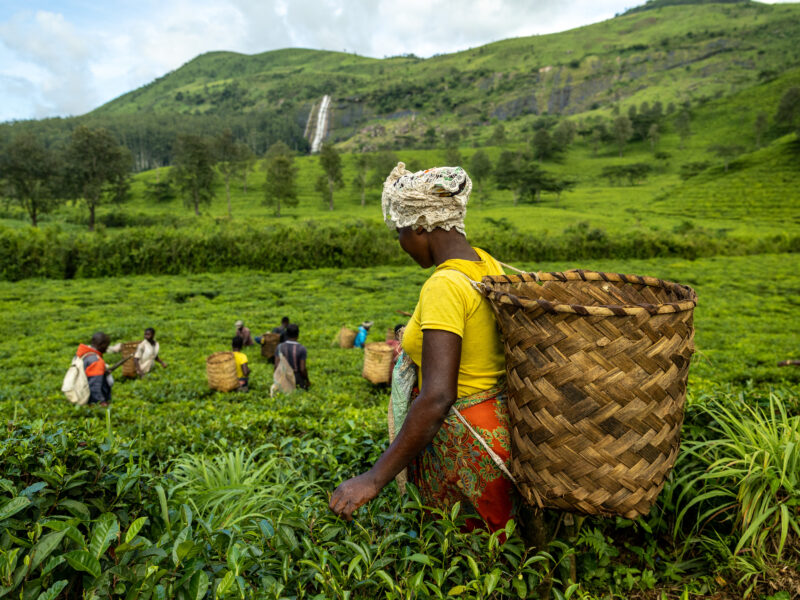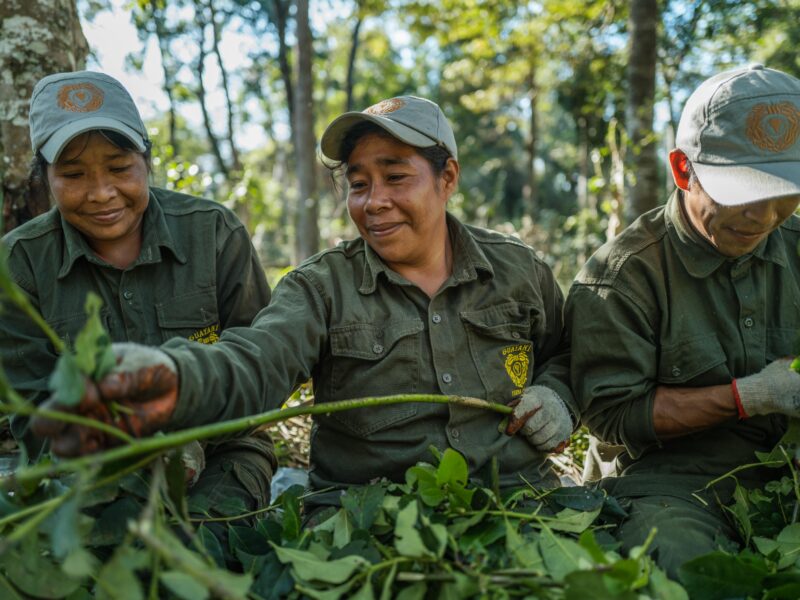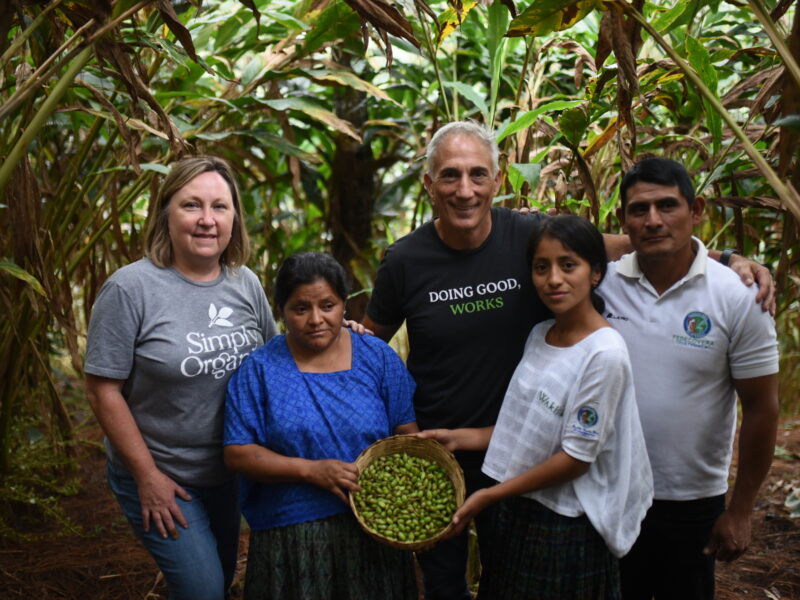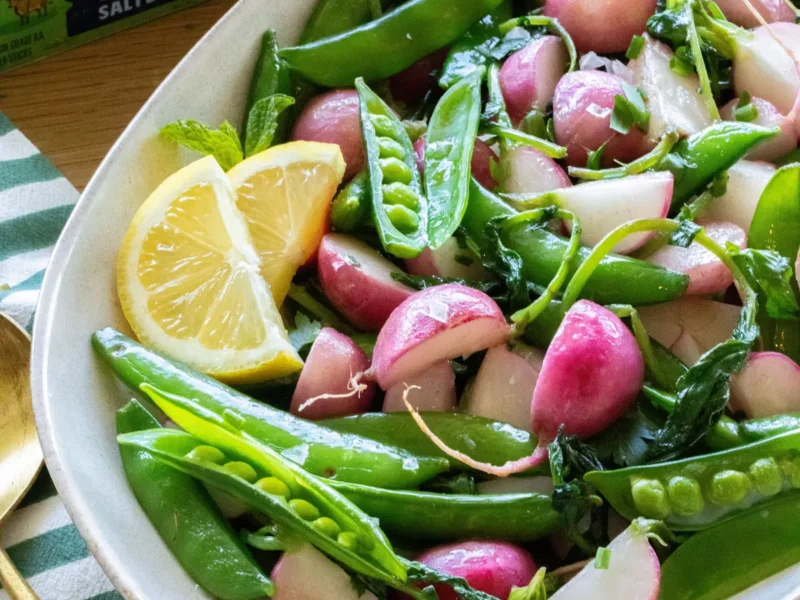Only Organic is interviewing organic farmers across the U.S. to highlight the wonderful work they do. This interview was conducted by Only Organic in partnership with Stonyfield.
Farmer Names: Myles Goodrich & Rhonda Miller Goodrich
(responses provided by Rhonda)
Farm: Molly Brook Farm
Location: Cabot, VT

Why did you choose to become an organic farmer?
Molly Brook is a 565-acre dairy farm that has been in the family since 1835. Myles is the 7th generation to operate the dairy. Myles was born and raised on the farm. He started working with his parents immediately after college. Myles and I bought his parent’s interest in the partnership in 2013.
Jerseys have always grazed the pastures at Molly Brook. Just like the Goodrich family, the cow families have also been on the farm for generations. Every animal on the farm is known by name and has its own personality.
Molly Brook has a distinguished dairy history and over the many generations, the farm has received numerous awards and recognitions for contributions to the Jersey breed and farming in Vermont for almost two centuries.
The decision to become an organic farm was a thoughtful process. Molly Brook had a long-standing relationship with Cabot Creamery the maker of Cabot Cheddar. Myles’s grandfather was a founding member of the Creamery in 1919. Molly Brook had shipped milk to Cabot Creamery consecutively for 99 years.
Another consideration was the sale of quality registered Jerseys from outstanding cow families that became a focal point of Molly Brook around 1980. The Jerseys raised on Molly Brook are prodigious producers known internationally for their genetics. How would transitioning to organic effect the cows? We were sure that we did not want to become a large factory farm.
We grew 53 acres of corn and had become concerned about the herbicides going into the soil. We wondered how herbicides such as “Round Up” in our corn affected our cows. We noticed more cows aborting their pregnancies.
We thought about the future of the farm. Our grandchildren are an important part of our life on the farm. It is important to leave the farm healthier and stronger for future generations.
Myles had been interested in transitioning the cows and land to organic for a number of years. We contacted Stonyfield and met their field representative, Kyle Thygesen, who enthusiastically supported our desire to become an organic dairy. We were further impressed with Stonyfield’s commitment to small organic dairy farms.
In 2015, Myles and I made the decision to transition the herd and land to organic. It was a no brainer that matched our style of farming perfectly. We earned our organic certification in 2018.
How long has your farm been certified organic?
We proudly filled our bulk tank with nutrient-rich organic Jersey milk on the first of January in 2018. It was a cold January morning but we were pleased as it was a lot of work transitioning the cows for one year and the land for three years to become certified organic.
Was it difficult to become certified organic?
From rural electrification to the introduction of the internal combustion engine to the impacts of a global milk market, the farm and the family have weathered a number of changes and challenges. Transitioning the cows and land was our challenge for many reasons.
The conventional milk price was very low when we transitioned, and with the cost of organic grain, it cost us more to produce milk than we were paid. We had to install a rotational grazing system as well as a watering system.
Overall, the cows did a great job with the transition, however, corn silage had always been part of the milking herd’s diet. It took some time for the older cows to balance their energy needs which manifested itself by taking longer for the older cows to become pregnant.
Our herd management style had always been about preventative care, and in fact, we were already using organic remedies, so discontinuing the use of antibiotics was not an issue for us.
We contour cropped 53 acres of corn which had to be planted to perennial grass using more expensive organic seeds (again while receiving conventional milk price). Also on each side of those strips we had to adhere to a 50-foot buffer that was considered part of the corn strip. We could not graze on that land or crop as a winter feed source for three years. We did have land that qualified as organic but the equipment had to be cleaned before cropping the organic fields so it caused us to complete all eligible organic fields then crop the conventional fields. It was complicated and at times seemed like three years was an eternity especially with Vermont weather that also hindered cropping.
What variety of crops do you grow?
Conservation practices have changed over the years but most significant was reseeding the 53 acres of contour corn fields using a no-till seed drill in 2016. Pasture land was seeded to King’s Agroseed grazing mix with a cover crop of forage oats (grazing mix contains: orchard grass, meadow fescue, ryegrass, red & white clover, & chicory). Cropland was seeded down using 15% HLR Blend Orchard Grass; 15% Barfleo Timothy; 40% Freedom Red Clover; and 30% STF Tall Fescue. Green Spirit Italian Rye Grass was planted as a cover crop. The farm will supplement the pasture and cropland in 20-acre plots to improve forage and crop quality as needed using a no-till seed drill.
We crop 143 acres of hay ground that is put into haylage and round bales. We have 86 acres of pasture. We average 400 round bales and 600 tons of haylage each year. The harvest varies depending on weather and equipment break downs.
We manage 335 acres of forest and harvest timber in accordance with our forest management plan, and working with our contracted Forester and the County Forester.
How do you build and support healthy soil at your farm?
Soil health and fertility are money in the bank to a dairy farmer. I took a class to design our nutrient management plan so that we understand our soil and the inputs it needs to be productive while keeping the phosphorus from manure applications within safe limits to protect water quality. We apply as appropriate on-farm composted manure and semi-solid manure to build organic matter as well as on-farm liquid manure.
We are fortunate that we started with healthy fertile soil, however, you can’t take healthy soil for granted. We have our soil tested every three years. We use wood ash on fields that need pH balancing. We like wood ash because it also adds micronutrients to the soil.
Perennial grasses that have replaced contour corn strips have dramatically decreased soil erosion in the fields if we have any at all. We have windbreaks and certainly using a no-till seed drill when we supplement our perennial grass helps keep our soil healthy and prevent erosion.
We monitor our soil health by comparing year to year crop yields and our dairy nutritionist tests our haylage and round bales as another indicator of soil health.
How do you curb pests and manage weeds on your farm?
We have found clipping pastures two to three times a grazing season helps us manage weeds and discourages invasive weeds from taking over. We trim and brush hog around the barn which we feel helps significantly with fly control in the summer as well as weed control. We purchase predator wasps, keep the barn clean and free of manure which also plays a significant role in helping control flies.
We apply mineral oil directly onto the top line of the cow which also helps with flies in the summer. You would be surprised how effective a cow tail can be to switch flies off their bodies. When the cows come into the free stall from the pasture, we have fans and brushes that keep them comfortable and help with flies. We also have fans in the milking parlor so that they are content while milking.
What is the biggest challenge you face as an organic farmer?
The higher cost of production such as organic grain and other organic goods can be challenging.
We have found that our cows are healthier and stronger but it would also be helpful for more research to better understand organic nutrition options to improve animal health. Nutrition plays an important role in protecting our cows from disease. The more information we have the better we can protect our animals.
What’s the one thing you wish all consumers knew about organic food and farming?
Consumers understood the importance of organic food to their health and well-being. Organic farming is not a new way of farming. We think of it as going back 100 years to how Myles grandparents and great grandparents farmed. The increased use of chemicals and emissions of carbon dioxide are threatening our planet. It is important for consumers to understand the many benefits of organic farming.
What advice would you give a younger generation of farmers that may be interested in becoming organic?
Transitioning our land and cows was hard but it was also the best decision that we have made on our dairy. Our cows are happy and productive, our land grows nutritious feed, and our water is pure and delicious. We are proud to be organic dairy farmers. We feel organic is the future.
Want to learn more about the Millers and their cows?
Join the Stonyfield Have a Cow program!
Visit Molly Brook Farm on social media:
Social media channels:

